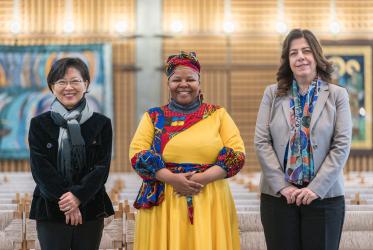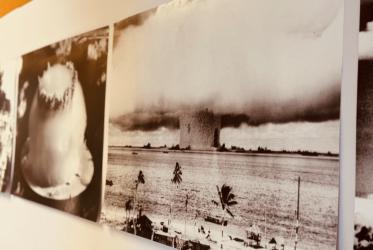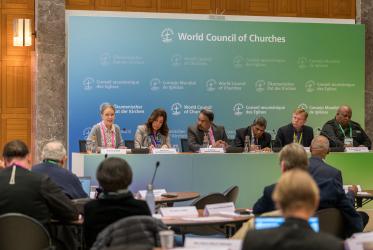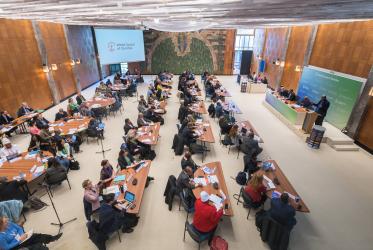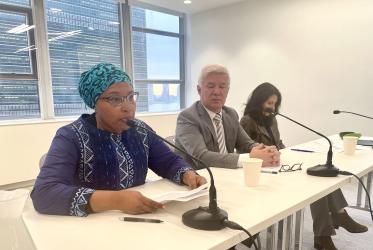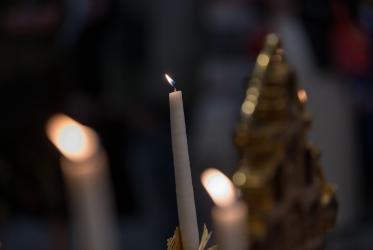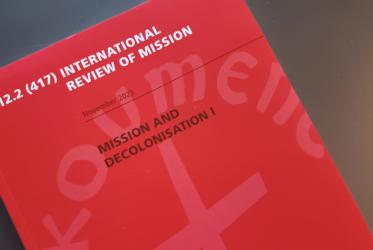Displaying 1 - 20 of 697
Voice of churches vital during UN women’s rights talks
28 March 2024
Korea Easter prayer envisions “a daily life of peace”
28 March 2024
Three WCC commissions elect vice moderators
08 March 2024
"Nuclear Resilience for Peace and Prosperity” event will open photo exhibition
08 March 2024
Ecumenical Centre, 150 Route de Ferney, Geneva
WCC submits comments on draft UN “Pact for the Future”
12 February 2024
Faith Actors Reflect on Their Role in Reaching HIV Goals at ICASA
21 December 2023








